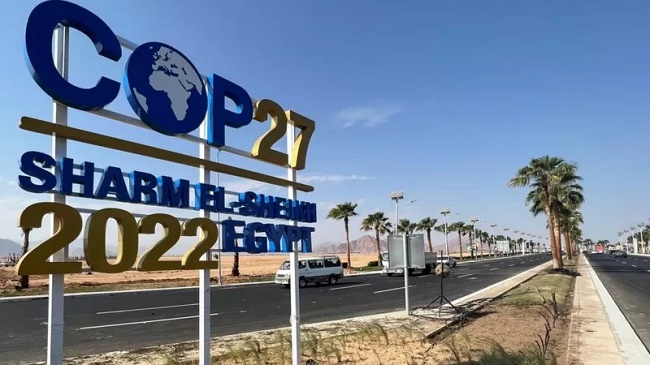Oxfam, an international organisation, has called on nations to honour their financial commitments made during 27th Conference of Parties (COP27) convention on climate change.
Mr. Henry Ushe, the Oxfam Programme Manager for Accountable Governance in Nigeria, made the call at a two-day workshop organised by the Civil Society Legislative Advocacy Center (CISLAC), with the support of Oxfam in Port Harcourt, Rivers State.

Some developed countries had pledged $100 billion annually to support the low- and middle-income countries in their climate action efforts.
Oxfam said that the actual amount already delivered was low with much of the finance provided as loans which aggravating debt burdens in vulnerable countries
Ushe, however, stated that Nigeria had developed the gas master plan following its commitment to COP27 to transit energy to net zero by 2060 and to the Paris Agreement of accelerating climate action.
He explained that Nigeria had also passed the Climate Justice Act and established its secretariat to work with CSOs and other stakeholders to ensure the total implementation of the policy framework.
“But what we haven’t seen since then is the financial commitment to be able to drive through with all of this policy; what we need is the financing of all these plans.’’
Ushe said that was why they were calling on those who made financial pledges at COP27 to redeem them, “while we hold our government to account, ensuring that the support is used judiciously.
“We are very optimistic about the safe transition because the country has put in place all the mechanism that is needed, including a very robust gas master plan,” he said.
In his remarks, Mr. Lawrence Dube, the Head Community, Environmental Legal Desk of Natural Justice in Nigeria, urged the regulatory agencies to structure and enforce global energy security.
Dube, who spoke on the “Aligning Gas Plans with Climate Goals”, urged government to put the policy framework into use, bringing investors to the round table discussion for investment and partnership.
Mr. Harry Udoh, the Chairman, Civil Society National Regulation Council of Nigeria, decried the slow pace of the implementation of the plans since 2007 till date.
Udoh urged government to accelerate gas infrastructure development, invest in pipeline networks, processing plants and storage facilities to improve market access.
He recommended that there should be expansion of virtual gas pipelines like the CNG and LNG trucking system to reach underserved areas.
He called for the strengthening of partnership within the West Africa Gas Pipeline (WAGP) to enhance regional energy security among others.
Earlier, Mr. Ayo Omowu, the Programme Lead, Department of Tax Justice, Environment, and Conservation of Nature in CISLAC, urged the country to implement the policy framework for the renewable energy and its sustainable development goals for 2060.
By Precious Akutamadu
